ch32v003funでArduinoの時間関係の関数が使用できるようにするためのプログラムです。サンプルプログラムをほんの少し書き換えたものです。
- millis()
- micros()
- delay()
- delayMicroseconds()
が使用可能になります。
- // Example for using SysTick with IRQs
- // 03-25-2023 E. Brombaugh
- // 05-12-2023 C. Lohr (Modified to reflect updated sysclk)
- // 09-25-2024 ADBeta (Minor updates to main loop, comments and added
- // convenient macro function)
- #include "ch32v003fun.h"
- #include <stdio.h>
- // Number of ticks elapsed per millisecond (48,000 when using 48MHz Clock)
- #define SYSTICK_ONE_MILLISECOND ((uint32_t)FUNCONF_SYSTEM_CORE_CLOCK / 1000 / 8)
- // Number of ticks elapsed per microsecond (48 when using 48MHz Clock)
- #define SYSTICK_ONE_MICROSECOND ((uint32_t)FUNCONF_SYSTEM_CORE_CLOCK / 1000000 / 8)
- // Simple macro functions to give a arduino-like functions to call
- // millis() reads the incremented systick variable
- // micros() reads the raw SysTick Count, and divides it by the number of
- // ticks per microsecond ( WARN: Wraps every 90 seconds!)
- #define millis() (systick_millis)
- #define micros() (SysTick->CNT / SYSTICK_ONE_MICROSECOND)
- #define delay Delay_Ms
- #define delayMicroseconds Delay_Us
- // Incremented in the SysTick IRQ - in this example once per millisecond
- volatile uint32_t systick_millis;
- // Initialises the SysTick to trigger an IRQ with auto-reload, using HCLK/8 as
- // its clock source
- void systick_init(void)
- {
- // Reset any pre-existing configuration
- SysTick->CTLR = 0x0000;
- // Set the compare register to trigger once per millisecond
- SysTick->CMP = SYSTICK_ONE_MILLISECOND - 1;
- // Reset the Count Register, and the global millis counter to 0
- SysTick->CNT = 0x00000000;
- systick_millis = 0x00000000;
- // Set the SysTick Configuration
- // NOTE: By not setting SYSTICK_CTLR_STRE, we maintain compatibility with
- // busywait delay funtions used by ch32v003_fun.
- SysTick->CTLR |= SYSTICK_CTLR_STE | // Enable Counter
- // SYSTICK_CTLR_STRE <- Enable auto reload
- SYSTICK_CTLR_STIE; // Enable Interrupts
- // SYSTICK_CTLR_STCLK <- HCLK/1; // Set Clock Source to HCLK/8
- // Enable the SysTick IRQ
- NVIC_EnableIRQ(SysTicK_IRQn);
- }
- // SysTick ISR - must be lightweight to prevent the CPU from bogging down.
- // Increments Compare Register and systick_millis when triggered (every 1ms)
- // NOTE: the `__attribute__((interrupt))` attribute is very important
- void SysTick_Handler(void) __attribute__((interrupt));
- void SysTick_Handler(void)
- {
- // Increment the Compare Register for the next trigger
- // If more than this number of ticks elapse before the trigger is reset,
- // you may miss your next interrupt trigger
- // (Make sure the IQR is lightweight and CMP value is reasonable)
- SysTick->CMP += SYSTICK_ONE_MILLISECOND;
- // Clear the trigger state for the next IRQ
- SysTick->SR = 0x00000000;
- // Increment the milliseconds count
- systick_millis++;
- }
- int main(void)
- {
- SystemInit();
- delay(100);
- printf("\n\nsystick_irq example\n\r");
- // Initialise the IRQ
- printf("initializing systick...");
- systick_init();
- printf("done.\n\r");
- // Enable GPIOs for demonstration
- funGpioInitAll();
- funPinMode(PA2, GPIO_Speed_10MHz | GPIO_CNF_OUT_PP);
- funPinMode(PC1, GPIO_Speed_10MHz | GPIO_CNF_OUT_PP);
- funPinMode(PC2, GPIO_Speed_10MHz | GPIO_CNF_OUT_PP);
- printf("Beginning Loop...\n\r");
- while (1)
- {
- // Toggle the GPIO Pins with a delay - total delay will be 500ms
- uint32_t start_millis = millis();
- // On
- funDigitalWrite(PA2, FUN_HIGH);
- funDigitalWrite(PC1, FUN_HIGH);
- funDigitalWrite(PC2, FUN_HIGH);
- delay(500);
- // Off
- funDigitalWrite(PA2, FUN_LOW);
- funDigitalWrite(PC1, FUN_LOW);
- funDigitalWrite(PC2, FUN_LOW);
- delay(500);
- uint32_t end_millis = millis();
- // NOTE: Due to the time it takes for printf(), the Current Millis will
- // increment more than 500 per loop
- printf("\nMilliseconds taken:\t%lu\n\r", end_millis - start_millis);
- printf("Current Milliseconds:\t%lu\n\r", millis());
- printf("Current Microseconds:\t%lu\n\r", micros());
- printf("SysTick->CNT:\t\t%lu\n\r", SysTick->CNT);
- }
- }
参考URL










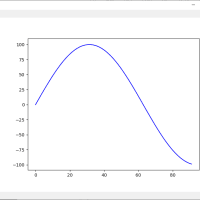
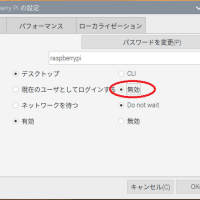
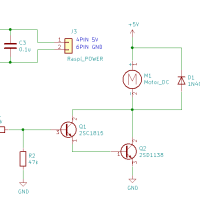
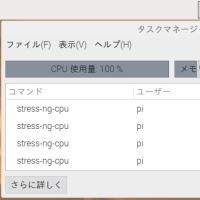
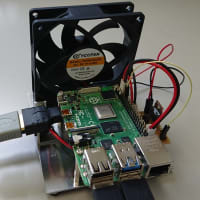
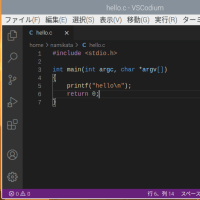

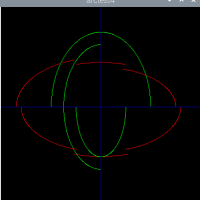


※コメント投稿者のブログIDはブログ作成者のみに通知されます